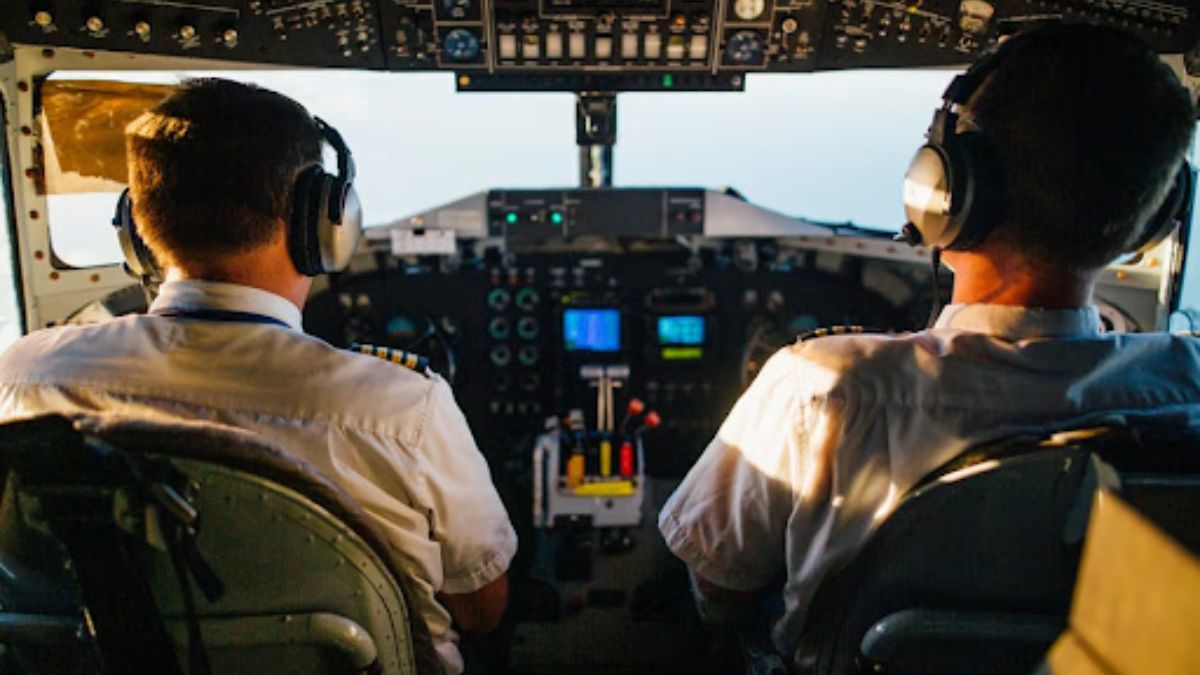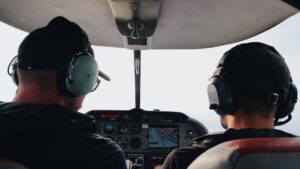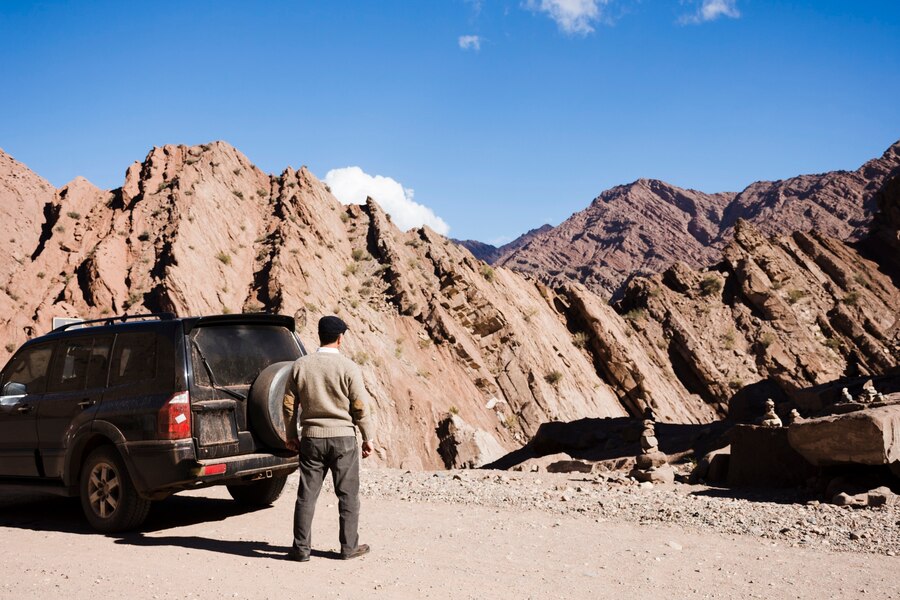TRAVEL
Top 7 Gifts Every Pilot Will Love for Any Occasion

Choosing a thoughtful gift for a pilot can be exciting, especially if you’re looking to match their passion for flying with something unique and useful. From practical tools to nostalgic keepsakes, there are plenty of options that can make any pilot’s day. Here are seven top gift ideas that any pilot would love to receive. Keep on reading to find out more!
1. High-Quality Aviator Sunglasses
Aviator sunglasses are not just stylish—they’re essential for any pilot. A high-quality pair of aviator sunglasses reduces glare from the sun, helping to protect the pilot’s vision during flights. Look for lenses with polarized filters and UV protection to ensure comfort and clarity, even in bright conditions. Durable frames made from lightweight metals like titanium are also a great choice, as they’re comfortable for extended wear.
Aviator sunglasses with a classic design are timeless, making them perfect for both male and female pilots. Consider customizing the pair or selecting one with a protective case, which adds a personal touch and keeps the gift practical.
2. Flight Bag with Ample Storage
A quality flight bag is one of the most practical gifts for a pilot, especially for those frequently on the go. Look for a bag with multiple compartments for organizing essentials like charts, headsets, logbooks, and tablets. Choose one that’s durable, water-resistant, and easy to carry—such as a bag with padded shoulder straps or a handle.
Some flight bags even come with specialized compartments for headsets and electronic devices, ensuring they stay safe during travel. A stylish yet functional flight bag makes a thoughtful gift that any pilot will appreciate and use on a daily basis.
3. Noise-Canceling Headset
For pilots, a good headset is essential for clear communication and noise reduction in the cockpit. Noise-canceling headsets are especially valuable, as they reduce background noise, allowing the pilot to focus better on conversations and in-flight sounds. Look for headsets with comfortable padding, long battery life, and Bluetooth capabilities for extra convenience.
This gift is ideal for both seasoned and student pilots who appreciate high-quality audio and comfort. A reliable headset enhances the flying experience and offers a sense of calm in noisy environments, making it a truly valuable addition to their gear.
4. Custom Pilot Logbook
A logbook is a sentimental yet functional item that every pilot uses to track their flight hours and milestones. A custom pilot logbook, complete with a personalized cover or engravings, is a thoughtful way to honor their achievements and provide a space to document their journey.
Choose a durable cover material, such as leather, that will stand the test of time and add a classic touch. Custom logbooks from an aviation store are often designed to accommodate a variety of flight categories, making them suitable for both hobbyists and commercial pilots. This gift is not only practical but also meaningful, as it becomes a keepsake over time.
5. Airplane Model for Desk Display
For the pilot who enjoys displaying their passion for aviation, a model airplane is a perfect gift. Choose a model that represents an aircraft they have flown or hopes to fly one day, whether it’s a classic fighter jet, a commercial airliner, or a sleek private jet. Airplane models come in various sizes, from miniature replicas to larger, detailed models that make stunning desk displays.
These models often come with stands, making them easy to place on a desk or shelf. A high-quality model airplane allows pilots to bring a piece of aviation into their daily space, making it both a decorative and sentimental gift.
6. Aviation-Themed Watch
Aviation watches are designed for both style and functionality, with features that appeal to pilots and aviation enthusiasts alike. Many aviation watches include flight-specific functions, such as altimeters, chronographs, and even E6B flight computers. These features can be helpful in the cockpit, making them more than just a timepiece.
Opt for a watch with a sleek design that can be worn both in and out of the cockpit. A durable strap and a clear, easy-to-read face are essential, as pilots often check their watch while handling other equipment. An aviation-themed watch makes a memorable, practical gift that any pilot will cherish.
7. Subscription to an Aviation Magazine or Training Program
For pilots looking to deepen their knowledge or stay updated on industry trends, an aviation magazine or subscription to a training program can be an excellent gift. Many publications feature articles on flight safety, travel destinations, pilot stories, and technology advancements. Online training programs and simulators, on the other hand, help pilots refine their skills and explore new techniques.
Some subscriptions even offer digital access, allowing pilots to read on the go or while waiting for their next flight.

Choosing the right gift for a pilot involves blending practicality with their passion for aviation. Whether it’s a functional noise-canceling headset, a personalized logbook, or a subscription that deepens their love for flying, each of these gifts offers something unique and memorable. For quality and variety, be sure to explore options online to find the perfect gift that speaks to their dedication to flight. No matter the occasion, a thoughtful gift tailored to their lifestyle is sure to take their love for aviation to new heights.
TRAVEL
Pool Enclosures for Winters with Snow: A Complete Guide

“Durable pool enclosures for winters with snow by Covers In Play, ensuring year-round pool protection”
Winter brings snow, chilly winds, and freezing temperatures, but your pool doesn’t have to suffer. Enclosing snow would do the job perfectly to protect your pool but also gives extended usability throughout the year. Not only do these structures keep your pool under cover against bad weather, but they also reduce maintenance costs, improve energy efficiency, and offer an inside place for you to stay cozy, even in the coldest month of the year. Let’s discover why it is the best option to invest in a pool cover during snowy winters.
Why Are Pool Enclosures for Winters with Snow Essential?
Pool care can prove to be quite challenging when the first flakes of snow start falling. Pool enclosures for winter with snow are essential because now their constructions offer protective guard against heavy snow loads and freezing temperatures with the best guarantees that the pool remains clean and operational. Such enclosures significantly reduce pool cleaning because of snow and other types of debris, including ice, getting into the pool.
Some solid pool enclosures act as an insulator, holding heat and lessening energy costs, thus keeping the temperature of the pool water. Hence, these enclosures become eco-friendly while bringing enjoyment in the elegant pool even in winter’s harshness.

“High-quality pool enclosures for winters with snow by Covers In Play, designed to withstand harsh weather”
How Pool Enclosures Protect Against Snow Damage
Snow and ice could do some serious damage to an open pool. The extra weight of stored snow may break pool covers or even damage the walls of the pool. Pool enclosures are designed for snowy winters to fight heavy loads of snow, keeping your pool safe from the effects of the weather.
Most of such enclosures are built using high-quality materials like aluminum frames and polycarbonate panels, adding strength and durability to the enclosures. Further, the coverage will not allow ice formation on the surfaces of the pool, bringing it to cracks or leaky surfaces.
Different Types of Pool Enclosures for Winters with Snow
1. Fixed Pool Enclosures
Contrary to the mobile structures which protect swimming pools during certain periods, fixed enclosures are permanent structures that offer year-round protection. They are durable structures usually designed to withstand heavy snow loads. A fixed enclosure will guarantee that the pool remains warm and secure during winters with heavy snows.
2. Retractable Pool Enclosures
Retractable pool enclosures would give the best flexible solution as it allows users the option of opening or closing the entire enclosure at their own discretion.
3. Dome-Shaped Enclosures
Dome-shaped enclosures are ideal for areas with heavy snow as their curved design prevents snow accumulation. The snow slides off the surface reducing the risks of structural damage.
Advantages of Pool Enclosures for Snowy Winters
1. Reduced Maintenance
Cleaning can be very tedious during winter with all the snow and debris around a pool. Therefore, pool enclosures greatly reduce the frequency of cleaning the pool because they keep out unwanted elements.
2. Energy Efficiency
Pool enclosures keep heat in, which reduces the amount of heating the pools require. Hence, they help save energy and cut utility bills during the winter season.
3. Increased Pool Use
A pool enclosure allows enjoyment of one’s swimming during all seasons regardless of the outside weather condition. Heated pool enclosures warm a space that you can enter easily during cold snowy winters.
4. Safety and Privacy
Enclosures are a barrier that keeps children and pets from accidentally falling into the pool. Equally, enclosures create privacy, providing a comfortable and secluded area.
How to Choose the Best Pool Enclosures for Winters with Snow
Material Strength and Durability
When choosing a particular pool enclosure, ensure that it is built using high-quality materials like aluminum and polycarbonate. These materials are lightweight yet strong enough to sufficiently handle heavy snow loads.
Customization Options
Most manufacturers offer designs that can be customized according to the dimensions of your pool and aesthetic needs. This way, you can have an enclosure that fits perfectly with the style you prefer while being functional.
Insulation and Heating
Going for winter use will require you to opt for enclosures with good insulation and also availing heating systems at integration. Your pool will thus be warm and comfortable even in frigid conditions.
Maintaining Pool Enclosures During Snowy Winters
Regular maintenance of your pool enclosure ensures that it lasts long. In order to do so, you need to Clear the panels. Whenever the panels to be kept clear are kept clean, sunlight can pass as maximum as possible through the panels.
Though these are a few tips for maintaining a pool, remember that well-built enclosures don’t require snow removal and eliminate the need to check for damages. If you’re struggling to find the right business to help you build high-quality, long-lasting enclosures, Covers In Play is one of the best options in town.
FAQs About Pool Enclosures for Winters with Snow
- Can pool enclosures handle heavy snowfall?
Yes, high-quality pool enclosures are designed to withstand heavy snow loads. Dome-shaped and fixed enclosures are particularly effective in snowy regions. - Do pool enclosures keep the water warm during winter?
Pool enclosures trap heat and can be equipped with heating systems to maintain warm water temperatures even in freezing conditions. - Are pool enclosures customizable for any pool size?
Most manufacturers offer customizable options to fit pools of all shapes and sizes, ensuring a perfect fit for your needs. - Do pool enclosures increase property value?
Yes, a well-designed pool enclosure can enhance your property’s appeal and value by extending the usability of the pool. - Where can I find reliable pool enclosure manufacturers?
Reputable manufacturers like Covers in play offer a range of high-quality options for snowy winters.
Conclusion
Pool enclosures for winters with snow are an invaluable addition to any pool owner’s setup. They protect your pool from harsh weather, reduce maintenance, and extend usability throughout the year. Whether you choose a fixed, retractable, or dome-shaped enclosure, the benefits far outweigh the investment.
By taking the time to select the right enclosure and maintaining it properly, you can enjoy a warm, inviting pool even during the coldest months. Protect your pool and enhance your winter experience by investing in a durable and efficient pool enclosure today.
TRAVEL
Exploring Garakpass Kelardasht: A Hidden Gem in Northern Iran

Garakpass Kelardasht, nestled in the heart of Mazandaran province in northern Iran, is a mesmerizing destination that offers an unparalleled blend of natural beauty, adventure, and tranquility. Known for its pristine landscapes, lush forests, and serene atmosphere, this hidden gem is an ideal getaway for nature lovers, hikers, and anyone seeking a break from the hustle and bustle of city life. In this article, we delve into everything you need to know about Garakpass Kelardasht, from its geographical significance to travel tips and highlights.
The Allure of Garakpass Kelardasht
Where is Garakpass Kelardasht?
Situated in the Alborz mountain range, Kelardasht is a small town in Mazandaran province, renowned for its picturesque valleys and vibrant ecosystem. Garakpass, located near this charming town, acts as a gateway to some of the most breathtaking vistas in the region. This area is accessible via scenic routes that pass through dense forests, mountain trails, and quaint villages, making the journey just as captivating as the destination.
A Natural Wonderland
Garakpass Kelardasht is synonymous with unspoiled nature. The region boasts verdant forests filled with oak, maple, and hornbeam trees, which create a stunning contrast against the rugged mountain peaks. The air here is refreshingly crisp, enriched with the earthy aroma of the forest floor. Wildlife enthusiasts will also find this area teeming with native species of birds and small mammals, providing ample opportunities for observation and photography.
Top Attractions Near Garakpass Kelardasht
1. Valasht Lake
One of the most iconic landmarks near Garakpass is Valasht Lake, a serene body of water surrounded by mountains and forests. The lake offers activities such as boating, picnicking, and birdwatching. Its reflective surface, especially during sunrise and sunset, creates a magical atmosphere that draws photographers and nature lovers alike.
2. Abbasabad Forest
Located a short drive from Garakpass, Abbasabad Forest is a UNESCO World Heritage Site known for its ancient trees and biodiversity. Visitors can explore winding trails, discover hidden waterfalls, and enjoy the calming sounds of nature.
3. Kandelus Village
Kandelus is a traditional village near Kelardasht that offers a glimpse into the local culture and heritage. The village is famous for its handicrafts, including handmade rugs, pottery, and embroidered fabrics, making it a great place for souvenir shopping.
Activities to Enjoy in Garakpass Kelardasht
Hiking and Trekking
With its rugged terrain and well-marked trails, Garakpass is a haven for hikers and trekkers. Popular trails range from beginner-friendly paths to challenging routes that lead to panoramic viewpoints.
Camping
For those who wish to immerse themselves fully in nature, camping in Garakpass is a must. Several designated camping spots provide safe and scenic locations to pitch a tent under the starry sky.
Photography
From vibrant wildflowers to snow-capped peaks, Garakpass Kelardasht offers endless opportunities for photography enthusiasts. Whether you’re capturing landscapes or close-up shots of flora and fauna, this region promises stunning visuals.
Best Time to Visit
The ideal time to visit Garakpass Kelardasht depends on your preferences:
- Spring (March to May): Witness the region come alive with blooming flowers and lush greenery.
- Summer (June to August): Enjoy pleasant temperatures and clear skies, perfect for outdoor activities.
- Autumn (September to November): Experience a kaleidoscope of colors as the leaves change hues.
- Winter (December to February): Ideal for snow lovers, as the area transforms into a winter wonderland.
Practical Travel Tips
- Transportation: While Kelardasht is accessible by car, it’s advisable to use a 4×4 vehicle for navigating the rugged paths leading to Garakpass.
- Accommodation: Options range from cozy guesthouses in Kelardasht to camping grounds near Garakpass.
- Local Cuisine: Don’t miss trying Mazandarani dishes like kebabs, local bread, and Ash-e-Mazandarani (a hearty soup).
- Packing Essentials: Include hiking boots, warm clothing, and a camera to make the most of your trip.
A Comparative Glimpse of Northern Iran’s Natural Attractions
| Feature | Garakpass Kelardasht | Alamut Valley | Lar National Park |
|---|---|---|---|
| Location | Mazandaran Province | Qazvin Province | Tehran Province |
| Main Attraction | Pristine forests and trails | Castles and rugged landscapes | Alpine meadows |
| Best Season to Visit | Spring to Autumn | Spring | Summer |
| Activity Highlights | Hiking, Camping, Photography | Historical exploration, Trekking | Birdwatching, Stargazing |
| Accessibility | Moderate (via Kelardasht) | Moderate | Easy |
The Unique Charm of Garakpass Kelardasht
What sets Garakpass Kelardasht apart from other destinations is its harmonious blend of tranquility and adventure. The untouched beauty of its landscapes offers a sense of serenity, while its trails and activities cater to the thrill-seekers. Unlike more commercialized tourist spots, Garakpass retains its authenticity, making it a perfect retreat for those looking to reconnect with nature.
Conclusion
Garakpass Kelardasht is more than just a destination; it’s an experience that stays with you long after you’ve left. Whether you’re a nature enthusiast, a photographer, or simply someone in search of peace, this hidden gem in northern Iran has something for everyone. Plan your visit to Garakpass Kelardasht and discover a world where nature’s beauty knows no bounds.
FAQs
How do I get to Garakpass Kelardasht?
The most common route is via Tehran to Kelardasht, followed by a short drive or hike to Garakpass.
Is it safe to travel to Garakpass Kelardasht?
Yes, the region is considered safe for tourists. However, it’s advisable to travel in groups and inform someone about your itinerary.
Are there guided tours available?
Yes, local tour operators in Kelardasht offer guided treks and sightseeing tours.
TRAVEL
What Should I Bring on a Cruise To Mexico?

A cruise to Mexico offers adventure and relaxation, with stunning beaches, exciting excursions, and plenty of onboard entertainment. To fully enjoy your trip, packing the right items is essential.
From comfortable clothing to sun protection and beach gear, thoughtful packing ensures you can make the most of every moment. This guide will help you prepare for your cruise by highlighting the must-have items for a stress-free, enjoyable vacation. Whether you’re lounging in the pool with your pool floats or exploring the culture of Mexico, packing smart will help you stay comfortable and prepared.
What Should I Wear on a Cruise?
When packing for a cruise to Mexico, it’s essential to choose clothing that suits the tropical climate and the activities you’ll enjoy onboard and onshore. Light, breathable fabrics like cotton and linen will keep you comfortable in the warm weather, while swimwear is a must for enjoying the ship’s pools and the beautiful beaches in Mexico.
Pack a few cover-ups for easy transitions between poolside lounging and lunch or excursions. Don’t forget about evening attire; many cruises have formal dinners where a dress or collared shirt is expected. Casual clothing, including shorts, T-shirts, and flip-flops, will be perfect for exploring the ports or lounging on the deck.
A light sweater or jacket is also recommended for cooler evenings or air-conditioned spaces on the ship. Lastly, pack sunscreen, hats, and sunglasses to stay protected while you enjoy the sunshine.
What Health and Safety Essentials Do I Need?
While on a cruise to Mexico, it’s crucial to be prepared with health and safety essentials to ensure a smooth and enjoyable vacation. First, bring a well-stocked travel health kit with over-the-counter medications like pain relievers, allergy medicine, seasickness tablets, and band-aids.
If you have any pre-existing medical conditions, pack any necessary prescription medications and a copy of your prescriptions in case you need a refill. Since the sun in Mexico can be intense, high-SPF sunscreen, after-sun lotion, and lip balm with SPF are essential for protection against sunburns.
It’s also smart to bring insect repellent to protect yourself from mosquitoes, especially if you plan on visiting rural or jungle areas. Stay hydrated by bringing a reusable water bottle, and consider travel insurance for emergencies or unexpected health issues during the trip. Finally, have a high-quality hand sanitizer and disinfectant wipes for hygiene throughout the journey.
Should I Bring Pool Floats and Beach Gear?
No cruise to Mexico is complete without spending time in the water, whether it’s lounging on the ship’s pool deck or relaxing at one of the pristine beaches in Mexico. Consider packing pool floats to kick back and unwind in the water for maximum comfort and enjoyment.
Inflatable floats come in a variety of designs, from classic loungers to fun, themed options. They’re perfect for leisurely floats around the pool or lounging at the beach. Also, bring beach towels for sunbathing or drying off after a dip in the ocean.
A wide-brimmed hat, water shoes, and a beach bag will help protect you from the sun while carrying your essentials. Don’t forget a waterproof phone case to protect your devices while enjoying water-based activities. Whether you plan to snorkel, swim, or simply enjoy the view from the beach, having the right gear will make your experience more comfortable and fun.
What Important Documents and Travel Essentials Do I Need?
Before embarking on your cruise to Mexico, ensure you have all the necessary documents and travel essentials for a seamless trip. The most important document is your passport because it will be required for embarkation and entry into Mexico. Some cruises may also accept government-issued ID for U.S. citizens, but it’s always safest to travel with a passport.
Along with your passport, bring your cruise boarding pass, travel insurance information, and any shore excursion tickets or reservation details. It’s also a good idea to make photocopies or take photos of your important documents and store them separately in case anything is lost or stolen.
Don’t forget to bring your credit/debit cards, some cash in small denominations (preferably Mexican pesos), and any cruise-specific membership cards or loyalty program details. For convenience, pack a small wallet or pouch to keep your documents safe and easily accessible while you enjoy the cruise.
Ready To Set Sail!
With the right essentials packed, your cruise to Mexico will be stress-free and unforgettable. From clothing and health items to entertainment and beach gear, being well-prepared ensures you’ll enjoy every moment. Last but certainly not least, pack a great camera to capture some of your favorite moments on board.
Now, it’s time to relax, explore, and enjoy your tropical getaway!

 Cartoon1 year ago
Cartoon1 year agoUnlocking the Potential of Nekopoi.care: A Comprehensive Guide

 Game1 year ago
Game1 year agoExploring Aopickleballthietke.com: Your Ultimate Pickleball Destination

 BUSINESS1 year ago
BUSINESS1 year agoWhat Companies Are In The Consumer Services Field

 BUSINESS12 months ago
BUSINESS12 months agoUnraveling the Mystery of 405 Howard Street San Francisco charge on Credit Card

 HOME IMPROVEMENT1 year ago
HOME IMPROVEMENT1 year agoVtrahe vs. Other Platforms: Which One Reigns Supreme?

 TECHNOLOGY12 months ago
TECHNOLOGY12 months agoThe Guide to Using Anon Vault for Secure Data Storage

 ENTERTAINMENT9 months ago
ENTERTAINMENT9 months agoUnderstanding Bunkr Album: A Comprehensive Guide

 ENTERTAINMENT1 year ago
ENTERTAINMENT1 year agoThe Epic Return: Revenge of the Iron-Blooded Sword Hound
















